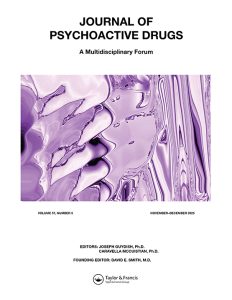- The Hero’s Journey and the Path of Recovery: Integrating Psychedelics into Traditional 12-Step Programs
- Stage One-The Ordinary World: Life in Recovery
- Stage Two-The Call to Adventure: Curiosity About Psychedelics in Recovery
- Stage Three-Refusal of the Call: Fear and Resistance in Psychedelic Exploration
- Stage Four-Meeting the Mentor: Guidance on the Path of Psychedelic Exploration
- Stage Five-Crossing the Threshold: Stepping Into the Unknown with Psychedelics
- Stage Six-Tests, Allies, and Enemies: Navigating Challenges, Stigma, and Antagonistic Views
- Stage Seven-The Approach to the Inmost Cave: Facing Deepest Fears in Psychedelic Exploration
- Stage Eight-The Ordeal: Confronting the Deepest Challenges in Psychedelic Healing
- Stage Nine-The Reward: Gaining Insight and Healing After the Ordeal
- Stage Ten-The Road Back: Integrating the Psychedelic Experience into Daily Life
- Stage Eleven-The Resurrection: Rebirth and Renewal After the Psychedelic Journey
- Stage Twelve-Return with the Elixir: Sharing Wisdom and Healing After the Psychedelic Journey
 In the Hero’s Journey, the Ordinary World is where the story begins—a place of familiarity and comfort, yet also one marked by dissatisfaction or a longing for something more. For individuals in traditional 12-step recovery programs, this phase represents life in recovery as it is, shaped by the routines, beliefs, and practices they have adopted to maintain sobriety. But while this world offers stability and a sense of identity, it is also where the seeds of curiosity about deeper healing—such as integrating psychedelics—begin to take root.
In the Hero’s Journey, the Ordinary World is where the story begins—a place of familiarity and comfort, yet also one marked by dissatisfaction or a longing for something more. For individuals in traditional 12-step recovery programs, this phase represents life in recovery as it is, shaped by the routines, beliefs, and practices they have adopted to maintain sobriety. But while this world offers stability and a sense of identity, it is also where the seeds of curiosity about deeper healing—such as integrating psychedelics—begin to take root.
In this article, we explore the Ordinary World of someone in recovery, highlighting the tensions between the safety of what is known and the pull toward a new, potentially transformative path.
Recovery as a Foundation of Stability
For many individuals in traditional 12-step programs, recovery is a lifeline. The Twelve Steps provide a structured framework for healing, centered around abstinence, spiritual development, and the support of a recovery community. This structure often marks a significant turning point in a person’s life, allowing them to leave behind the chaos and destruction of active addiction. Through commitment to the steps, meetings, and a higher power, they find a new sense of purpose and identity.
This is the Ordinary World of recovery—a place of relative stability and safety. It’s characterized by regular attendance at meetings, a network of peers in recovery, and the ongoing practice of the Twelve Steps. Over time, this routine creates a comforting sense of predictability. The individual knows the boundaries of this world: what is expected, what is safe, and what will help them maintain sobriety. For many, the tools and teachings of the Twelve Steps are not only helpful; they are essential for staying sober.
The Benefits and Limitations of the Ordinary World
While this ordinary world offers stability, it can also be a place of emotional tension. As the individual moves deeper into recovery, they may find themselves grappling with unresolved trauma, spiritual stagnation, or an underlying sense that their journey is incomplete. The Twelve Steps, while transformative for many, are not a cure-all. For some, there are wounds that remain unhealed, or spiritual questions that linger, even after years of sobriety.
This is where the limits of the Ordinary World begin to surface. The comfort of the known can start to feel restrictive, especially if deeper healing or spiritual growth seems elusive. The person may begin to notice a dissonance between their external recovery and their internal emotional or spiritual life. Despite having achieved sobriety, they might feel disconnected, unfulfilled, or curious about what lies beyond the familiar confines of their recovery world.
The Inner Restlessness and Longing for More
The Ordinary World is often marked by a growing sense of restlessness. On the surface, everything may seem fine—the individual is sober, attends meetings, and engages in the steps. But beneath that surface, there may be an inner yearning for something more. This can manifest as a feeling of being stuck or stagnant, or as a quiet but persistent curiosity about other forms of healing, particularly those that offer access to deeper levels of consciousness or spirituality.
This restlessness is a critical element of the Ordinary World. It serves as the first indication that the individual is ready to move beyond their current experience of recovery. Just as the hero in a myth begins to feel that the familiar world no longer meets their needs, individuals in recovery may start to question whether the tools they have are sufficient for the next stage of their growth. For some, this manifests as a desire to explore new spiritual practices, meditative techniques, or forms of therapy that promise a deeper connection to the self or the universe.
The Role of Psychedelics in Expanding the Ordinary World
For many in recovery, this internal restlessness leads to a curiosity about psychedelics. The emerging research on psychedelic-assisted therapy, which shows promise in treating trauma, depression, and addiction, can be particularly intriguing. For individuals who have worked through the steps and yet feel like something is still missing, the idea of integrating psychedelics into their healing journey may begin to form. This is often a subtle shift, marked by quiet contemplation or the growing awareness that psychedelics might offer access to parts of the self that traditional recovery practices have not fully addressed.
However, the decision to even consider psychedelics while in a 12-step program can be fraught with tension. The core belief in traditional recovery is one of abstinence—not just from alcohol or drugs of choice but from any mind-altering substance. This creates a significant psychological barrier for many, as they contemplate whether using psychedelics in a controlled, therapeutic setting could compromise their sobriety or violate the principles of their program.
The Conflict Between Safety and Growth
At this point, the individual is faced with a conflict: the Ordinary World of traditional 12-step recovery provides safety, but it may no longer feel like enough. The individual might feel a pull toward psychedelics as a potential pathway to greater healing, but they are also wary of stepping outside the boundaries of their recovery program. The comfort of the known—regular meetings, a strong recovery community, and the tools of the Twelve Steps—stands in stark contrast to the uncertainty of exploring psychedelics, a realm that may feel both promising and dangerous.
This conflict is at the heart of the Ordinary World in the Hero’s Journey. The hero must first become dissatisfied with their current reality before they can embark on the adventure. For those in recovery, this dissatisfaction is often subtle—a growing awareness that, despite all the tools they’ve been given, they are still searching for something deeper. The longing for growth, transformation, and spiritual connection begins to outweigh the fear of leaving the known world of traditional recovery behind.
Holding Space for Curiosity
The Ordinary World is not one of action, but of inner contemplation. It is a place where the individual begins to hold space for the possibility that there is more to recovery than they have experienced thus far. For those curious about integrating psychedelics into their healing journey, this phase is critical. It is a time of questioning, of quiet reflection on the possibilities that psychedelics might offer, and of weighing the risks and rewards of stepping into an uncharted territory.
This is also a time when individuals might begin to seek out information—reading about the therapeutic use of psychedelics, learning about the science behind substances like psilocybin or MDMA, and considering how these substances might fit into a recovery framework. They may start to wonder if psychedelics could help them access deeper levels of healing, resolve trauma, or achieve a greater spiritual connection that they have been searching for.
The Restlessness Before the Call
In the Hero’s Journey, the Ordinary World is a place of safety and stability, but also one of dissatisfaction and longing for something more. For individuals in traditional 12-step recovery programs, this phase represents a time of inner tension—a time when they may feel the pull to explore psychedelics as a tool for deeper healing. While the familiar world of recovery offers comfort, it may no longer feel sufficient for the next stage of growth.
In this Ordinary World, the individual in recovery begins to contemplate the possibility of stepping into the unknown, fueled by curiosity and a desire for greater connection and healing. It is the restlessness before the call, the quiet yearning that precedes the adventure. The decision to explore psychedelics is not yet made, but the seeds of possibility are planted, waiting for the moment when the hero will answer the call to step beyond the ordinary and into the extraordinary.




